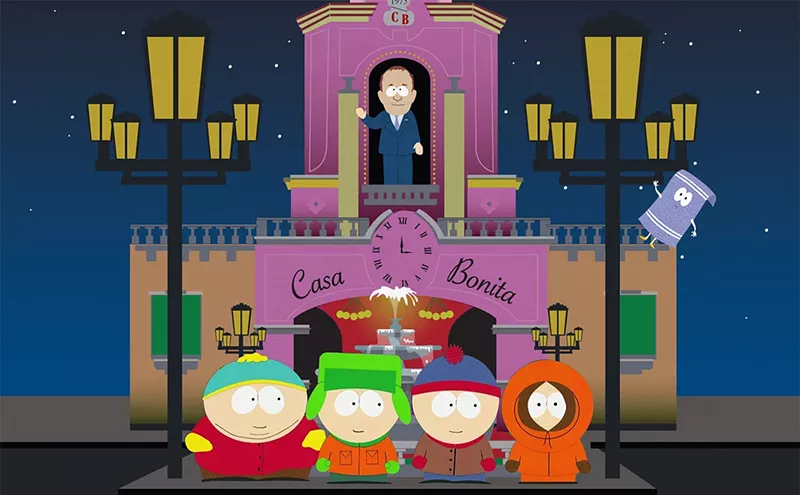Why is Iago so intent on destroying Othello? Iago himself gives two reasons: He's been passed over for promotion, and he believes Othello has slept with Emilia, the wife whom Iago treats with brutal indifference. But the script leaves his true motive murky, and no one has ever come up with a definitive answer. Some critics see Iago as the unreasoning embodiment of pure evil, a throwback to the medieval figure of the Vice. Back in the 1930s, when Freudianism was new and exciting, Laurence Olivier, alternating the roles of Othello and Iago with Ralph Richardson, famously concluded that Iago was maddened by suppressed homosexual desire for Othello; he therefore kissed Richardson on the mouth during the scene in which the two men pledge mutual loyalty ("I am your own forever," declares Iago). Flummoxed, Richardson responded, "Oh, my dear boy."
Shakespeare's plays are so profound and insightful that their meanings tend to shift with the zeitgeist. Of course, I'd known all along that Othello was a play about race, among other things, but somehow that aspect had never come to the forefront in previous productions. Shakespeare was a man of his time; his culture was casually and matter-of-factly racist. He himself clearly didn't share the disease or had only a light case, making Othello a noble and valiant figure undone by Iago's machinations and his own tragic flaw of jealousy.
But this time around, watching John Hutton's masterful Iago, pondering his inexplicable evil-doing, I couldn't help thinking about the political climate in America right now. Things have changed so much in the last year; racial gibes that haven't been given a public airing in decades (no matter how often they may have been uttered in private) are in the air and all over the media. The stereotype invoked by the Tea Partiers of the black man as a dangerous and impure outsider against which white America both defines itself and requires protection is as manifest in Othello as it was in the antebellum South. Ancient race hatred, boiling in the blood, is the likeliest explanation I can come up with for the protesters' spittle-flying rage, threats of violence and incoherent list of grievances, and — given Shakespeare's deep understanding of the human condition — it's a likely motivator for Iago's spite. Hutton makes Iago an ordinary old soldier, bluff and apparently honest. Watching him gull his victims and offer hypocritical comfort to a desperate Desdemona is a lesson in the power of acting — particularly charged and fascinating because Hutton's acting a man who's acting compassion, and he does it full throttle, without any winks or smirks for the audience.
Another perennial question has been the level of Emilia's complicity in Desdemona's murder. Desdemona's attendant, Emilia gives Iago the accidentally dropped handkerchief he uses to seal Desdemona's fate. Yet she seems to genuinely care for her young mistress. In a rich and evocative performance, Kathleen McCall provides at least some answers. She communicates Emilia's yearning love for her husband, despite her slowly dawning awareness of just what he is. She sort of guesses what he's up to, but — like many wronged wives — she won't quite let herself know.
There's something very wrong, however, when the murder of Desdemona leaves you dry-eyed but you tear up at Emilia's death. When you're more interested in Emilia and Iago, and even in ancillary characters such as Desdemona's uncle, Lodovico (played by Geoffrey Kent), Gratiano (John Arp), the vivid courtesan Bianca (Allison Pistorius) and the poor mug Roderigo (a delightfully sullen performance by David Ivers) than you are in the grand love-tragedy of Othello and Desdemona. The problem lies with Robert Jason Jackson's performance in the title role: There's no feeling, just a lot of speechifying. When he looks at Desdemona, you don't believe he loves her, or even that he sees her. Othello is supposed to have won his beautiful Venetian wife with his storytelling, but though he has a fine voice, Jackson doesn't even get the rhythms right. I don't know if it was her choice or that of director Kent Thompson, but Meghan Wolf's fragile, pretty Desdemona is the embodiment of pure Victorian maidenhood, a performance that might work well on film but is too small and muted even for the intimate theater where this Othello takes place. Goodness doesn't have to be bloodless; it can be a compelling moral force. But when it's not much manifest, Iago is bound to have the final word.
Othello












